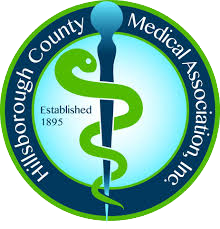Compulsory Medical Examinations (CMEs) are a key part of many personal injury, workers’ compensation, and liability cases. Understanding how they work and what to expect can help attorneys prepare more effectively and better represent their clients.
What Is a CME?
A Compulsory Medical Exam is a medical evaluation requested by the defense in a legal case. It allows the opposing party to have an independent physician examine the claimant and provide an opinion on the injury, diagnosis, and treatment. CMEs are typically allowed by court rules and may be required if requested within the scope of the case.
How Are CMEs Used in Legal Cases?
The physician conducting the CME medical exam prepares a report that can be used in court. These reports may address:
- Whether an injury exists
- The cause of the injury
- Whether treatment was necessary or appropriate
- The need for future care or limitations
This information can influence settlement discussions or be used during depositions or at trial.
What Cases Are CMEs Best For?
Compulsory Medical Exams (CMEs) are most useful in cases where injury claims are central to the legal dispute. They help clarify medical facts, especially when there is disagreement about the cause, extent, or treatment of an injury.
CMEs are commonly used in:
- Personal Injury Cases – Auto accidents, slip-and-falls, or other injury claims where plaintiffs report ongoing pain or disability.
- Workers’ Compensation Claims – To determine if the injury is work-related and whether it limits the ability to return to work.
- Medical Malpractice – To assess whether a procedure caused lasting damage or if symptoms were pre-existing.
- Disability Disputes – To evaluate the legitimacy and scope of a claimed disability.
- Product Liability – When a defective product is alleged to have caused injury.
In these cases, a CME offers an independent medical opinion that can support or challenge a claim. It provides valuable insight into causation, the necessity of past or future treatment, and the likelihood of long-term impact—all of which can influence the outcome of a case through settlement or trial.
When and Why to Request a CME
A CME medical exam is often used when there’s disagreement about the severity or cause of an injury. If the case involves long-term treatment, high medical costs, or disputed liability, a CME can offer an additional perspective. Insurance companies or defense attorneys may request one to confirm or question a diagnosis, identify inconsistencies, or evaluate permanent impairment.
Expert witness medical exams can also be helpful in evaluating pre-existing conditions, determining whether an injury is work-related, or understanding whether the recommended treatment plan is appropriate.
How Attorneys Can Prepare
Even though the CME is requested by the defense, attorneys representing the claimant should:
- Explain the process to their client
- Prepare the client for what to expect during the exam
- Request to have a representative or observer present, if allowed
- Review the examiner’s background and past reports
Why CMEs Matter
CME reports can have a big impact on the direction and outcome of a case. They offer the court another medical perspective and are often used to challenge the extent or cause of an injury. Understanding the role and limits of a CME helps attorneys better anticipate challenges and protect their client’s interests throughout the case.
Other Important Considerations
Timing, documentation, and examiner credibility all play a role in the usefulness of a CME. The sooner a CME is scheduled after a claim is filed, the more accurate the findings may be. Attorneys should confirm the examiner is truly independent and experienced with legal reporting before working together. Courts and juries often weigh the professionalism and objectivity of the examining physician, so choosing the right expert medical witness matters. A well-executed CME can help clarify disputed facts, support or refute claims, and ultimately guide fair outcomes in mediation, settlement, or trial.
At Tampa Orthopedic & Sports Medicine, our orthopedic expert witnesses provide CMEs, IMEs, detailed case reviews, and clear, reliable reports. Contact us today to learn how we can support your case.












